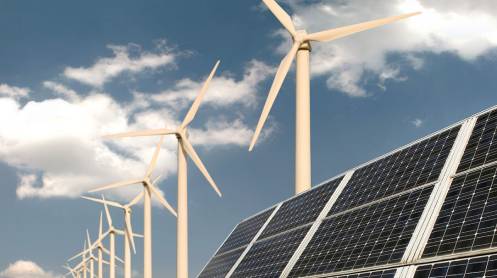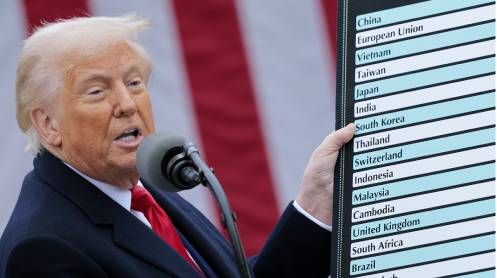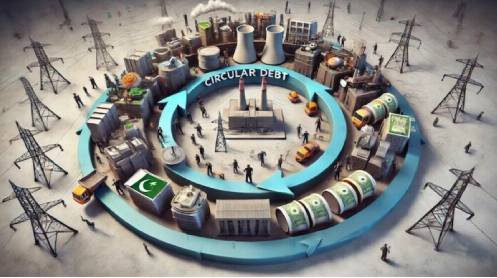The Private Power & Infrastructure Board (PPIB) was established in 1994 as a one-window facilitator on behalf of the Government of Pakistan (GoP) to promote private investment in the power sector of Pakistan. Since its inception, PPIB has consistently remained a frontrunner institution in Pakistan’s power sector. Recognizing the performance and success of PPIB, the government, on the advice of multilateral organizations, merged the Alternate Energy Development Board (AEDB) into PPIB last year in order to transform it into a true one-window facilitator for all investors in the private sector.
PPIB has achieved unprecedented success by facilitating the commissioning of one hundred (100) multi-fuel-based Independent Power Producers (IPPs) with a cumulative capacity of around 25,000 MW, in addition to a mega ±600 kV HVDC Matiari-Lahore transmission line project. The power generation projects implemented through PPIB utilize multiple technologies, including hydel, wind, solar, bagasse, imported and local coal, gas/RLNG, and RFO. The materialization of local and foreign direct investment (FDI) of around US$ 33 billion through private sector investments places PPIB in a unique position among power sector organizations in Pakistan.
PPIB also serves as the coordinator for power sector activities under the China Pakistan Economic Corridor (CPEC) and leads the Energy Planning Experts’ Panel (EPEP) of the CPEC. To date, IPPs with a capacity of 8,020 MW have been commissioned under the CPEC regime, while another set of projects with a capacity of 5,028 MW is currently at various stages of development.
As Pakistan strides towards a future goal of sustainable power sector and energy security, the spotlight turns to a diverse array of renewable energy sources, including hydropower, wind, solar, and bagasse. These resources collectively emerge as pillars of hope in Pakistan’s quest for a greener and more resilient energy landscape. With its favorable geographical location and abundant natural resources, Pakistan holds significant potential for renewable energy. It boasts over 64,000 MW of hydro resources, abundant sunny days promising a potential of up to 2.9 million MW of solar energy, a lengthy and windy coastal strip offering an inexhaustible supply of wind power reaching up to 132,000 MW, and the huge 175 billion-ton Thar Coal Reserve providing a cost-effective and indigenous fuel option for base load power generation for decades to come. The GoP has embarked upon harnessing all these resources to curb country’s greenhouse gas emissions by 2030. Renewable energy not only contributes to affordable electricity nationwide and stabilizes energy prices in the long run but also aligns with the sustainable development goals of the United Nations, particularly SDG 7, by promoting access to clean energy, alleviating poverty, addressing climate change, and ensuring access to affordable, reliable, sustainable, and modern energy for all. Regarding coal-based projects, the GoP/PPIB is fully cognizant of the climate change agenda, hence, all such projects have been developed in strict compliance to the international environmental standards set by the World Bank/IFC.
PPIB, being a policy implementing agency of GOP, also has a strong focus on development of clean and indigenous power generation sources. In this context, PPIB is facilitating the installation of private sector power plants inter alia based on hydropower, solar, wind and Bagasse. Current portfolio of PPIB for renewable energy technologies is as under:
GOP has set an ambitious target to optimize the share of renewables. Pursuant to IGCEP 2022-31, the proposed share from renewable energy resources is 12,926 MW for Solar and 6,767 MW for Wind, while the share of hydropower in the national energy mix will be increased from 25% to 33% (i.e., from 10,847 MW to 22,701 MW). These figures indicate that the total share of clean and green energy in domestic installed capacity is targeted to be optimized up to 62% by 2031. This underscores Pakistan’s commitment to transitioning towards a more sustainable and diversified energy mix, reducing reliance on fossil fuels, and mitigating the impacts of climate change. As a first step in this direction, 1,200-2,400 MW Solar Power Projects are planned to be implemented under the substitution plan.
PPIB is currently operating within various policy frameworks, including the National Electricity Policy (NEP) 2021, Power Generation Policy 2015, Transmission Line Policy 2015, Alternative and Renewable Energy (ARE) Policy 2019, Framework Guidelines for Fast-Track Solar PV Initiatives 2022, NEPRA (Alternative & Renewable Energy) Distributed Generation, Net Metering Regulations 2015, and AEDB (Certification) Regulations.
NEP 2021 visions to ensure universal access of electricity through a self-sustainable power sector, developed and premised on: optimal utilization of indigenous resources; integrated planning approach; efficient, liquid and competitive market design; and affordable & environment friendly outcome for the consumers. In light of NEP 2021, NEPRA has introduced IGCEP, NEPRA (Electric Power Procurement) Regulations, 2022 for their implementation by relevant entities as per the assigned mandate. PPIB is observing IGCEP, and entering into the role of IAA in relation with the CTBCM.
Similarly, the ARE Policy 2019 is designed to create a conducive environment and a robust framework for the sustainable growth of the ARE sector in Pakistan. The Framework Guidelines for Fast-Track Solar PV Initiatives 2022 have been launched to address the impact of high international oil and LNG prices on electricity tariffs and foreign exchange reserves. These initiatives include the substitution of expensive imported fossil fuels with solar PV energy, solar PV generation on 11 kV feeders, and the solarization of public buildings. Government has already started an initiative to streamline and align all these policies to achieve goals and target set by National Electricity Plan 2023.
In addition to large-scale RE projects, the GOP encourages the adoption of renewable energy technology at the consumer level across domestic, commercial, and industrial sectors. PPIB promotes renewable energy-based net-metering deployments under the NEPRA (Alternative & Renewable Energy) Distributed Generation and Net Metering Regulations, 2015. PPIB is also involved in certifying service providers, vendors, and installers of solar systems under the AEDB (Certification) Regulations. This certification process aims to facilitate consumers and Distribution Companies (DISCOs) while ensuring the quality of installed equipment/systems and provision of quality after sales services. The regulations were revised in August 2021 to simplify procedures in alignment with the government’s vision of ‘Ease of Doing Business. Encouraging statistics reveal that as of March 2024, the number of net-metering-based solar installations has reached up to 117,807, with a cumulative capacity of 1,822 MW, while the number of active AEDB certified installers has surpassed 400.
Investment in hydropower projects by the private sector has been attracted from both foreign and local investors by policy incentives, such as those offered in the 2002 and 2015 power policies. However, the perception of sufficient and to some extent surplus capacities has slowed down the progress on LOIs and LOSs already issued by PPIB and provincial governments. Challenges such as Sinosure clearance(mandatory insurance requirements related to financing by Chinese financial institutions), and the application of the Electric Power Procurement Regulations (EPPR), inclusion/exclusion of projects in IGCEP iterations, non-determination of Feasibility (stage-1) tariff for hydropower projects with completed feasibility studies serve as potential speed-breakers in the fast track development of RE projects.
The ambitious targets for harnessing the potential of renewables currently face several challenges, including reinforcement and automation of transmission network, circular debt, country’s credit rating, pressure on foreign exchange reserves, and policy & regulatory challenges. To regain momentum in renewables, the government has aggressively initiated measures to put the power system on solid footing i.e. improve collaboration between power sector entities to boost investments, control power system losses/theft, improve recoveries from consumers, remove transmission constraints, introduce private sector participation in DISCOs, streamline development tracks, and introduce long term reality-based policy and regulatory measures etc., to instill investors’ confidence in ongoing and future RE projects.
PPIB firmly believes that renewables are pivotal to Pakistan’s energy future. Thus, it is poised to embark on a significant journey towards promoting renewable energy sources such as hydel, wind, and solar. This initiative aims to foster sustainable energy solutions that align with Pakistan’s broader objectives of energy security, environmental sustainability, and economic development. While talking about the development of RE Projects, it is critical to reiterate GoP and PPIB’s commitment to carryout bidding of Cat-III wind and solar projects which have been stalled for long time due to one reason or other. Additionally, realizing GoP’s fiscal constraints and importance of a robust automated transmission and dispatch system, PPIB is also actively working on offering transmission lines and grid infrastructure development to the private sector as soon as the Transmission System Expansion Plan (TSEP) is finalized and approved.





